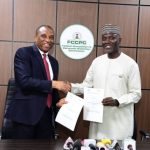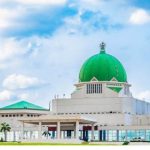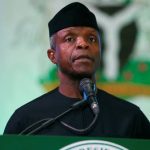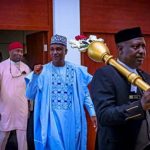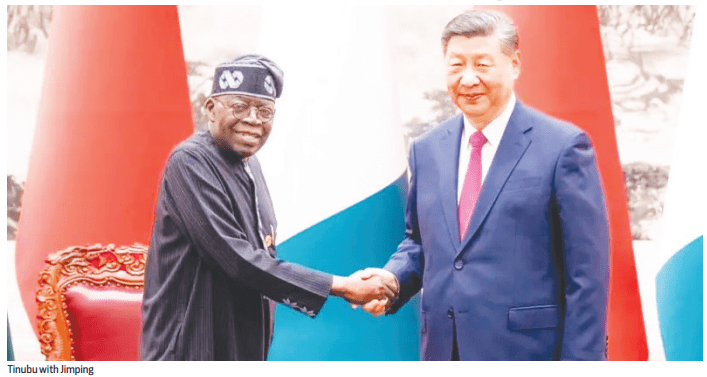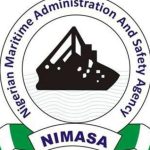President Bola Tinubu last Friday rounded off his official visit to China with his trip to the world’s 2nd largest economy ending with very significant and mouthwatering gains for Nigeria.
It was obvious that the President was looking forward to a trip heavy on deals that would impact on Nigeria’s quest to improve our infrastructure, agriculture, power, solid minerals, among others judging by the public officials in his official entourage.
From the Finance Minister/Coordinating Minister of the Economy, the Minister of Trade and Investment, the Minister of Solid Minerals, Minister of Power, FCT Minister, Minister of Defence, Minister of Transportation, Minister of State for Petroleum Resources (Gas), Minister of Information and National Orientation, Minister of Foreign Affairs etc, to Governors of Lagos, Kaduna and Kwara States, the President’s entourage was tailored for purpose.
Hope rises on completion of Lagos-Kano railway
Shortly after being warmly received by the Chinese government, President Tinubu on Monday, September 2, visited the China Railway Construction Corporation (CRCC), during which he acknowledged the company’s role as a reliable partner in Nigeria’s infrastructure development programme, commending its ongoing railway projects in the country.
President Tinubu right there at the headquarters of CRCC promised that the Ibadan-Abuja-Kaduna-Kano railway segments will be completed and done to the satisfaction of Nigeria and West Africa at large. Already China is providing funding through the China Development Bank for the ongoing Kaduna-Kano section of the Lagos-Kano railway project.
The Ibadan-Abuja section is set to be funded by the Chinese too thanks to renewed cooperation between Nigeria and China on the Belt and Road Initiative.
HUAWEI announces launch of DigiTruck
After the visit to CRCC headquarters in Beijing, President Tinubu also visited the Huawei Technologies’ Beijing Research Centre, where the company announced the launch of DigiTruck, a mobile ICT classroom aimed at enhancing digital literacy in underserved communities in Nigeria.
Chairman of Huawei’s Board of Directors, Mr Liang Hua said that the initiative would operate in 10 states annually, training at least 3,000 students each year.
Huawei also proposed to build two major technology data storage centres in Lagos and Kaduna states, which would create employment and opportunities for more young people in Nigeria.
Fruitful bilateral meeting With Chinese President, Xi Jinping
President Tinubu held a high-powered bilateral meeting with the Chinese President, Xi Jinping at the Great Hall of the People in Beijing on Tuesday, September 3.
At the bilateral meeting, the two heads of state announced the elevation of China-Nigeria relations to a comprehensive strategic partnership from just a strategic partnership, signaling deeper ties between the world’s second most populous nation and the most populous black nation on earth.
At the bilateral meeting with Xi Jinping, several bilateral MoUs were signed on the Belt and Road co-operation plan (promoting the implementation of the Global Development Initiative), economic development, application of the Beidou Navigation Satellite System, nuclear energy, peanut exports to China, and news media, among other fields.
The belt and road MoU is particularly very crucial as it further solidifies China’s interest to continue to invest in infrastructural projects in Nigeria especially on railways and roads/bridges. The cooperation agreement on nuclear energy is equally important as it is meant to enhance Nigeria’s capability to harness nuclear technology for electricity and also utilization in medicine.
The MoU on export of shelled peanuts is very important for our agricultural and Nigeria’s quest to increase non-oil exports. It also signals China’s readiness to buy more processed or semi-processed goods from Nigeria. Already, with a trade volume of over $23 billion, Nigeria is China’s second largest trading partner in Africa. With huge potentials for even more trade, Nigeria can surpass South Africa as China’s largest trade partner on the continent.
The President then joined other African leaders to participate in the Forum for Africa-China Cooperation with the theme. At the Forum, the next chapter of Tinubu’s trip unfolded. On the sidelines of the conference, more MoUs were signed by Ministers and governors some of which include:
Gas-related projects
The Minister of State for Petroleum (Gas) witnessed the signing of critical Project Agreements for the Brass Industrial Park, Gas Gathering Pipelines & Associated Facilities, and the Methanol Complex Project between Brass Fertilizer and Petrochemical Company Ltd. (BFPCL) and the China Road and Bridge Corporation (CRBC).
This partnership involving three key projects has the potential to inject about $3.3 billion into Nigeria’s economy and particularly driving growth and innovation in Nigeria’s energy sector. These projects are very pivotal in driving Nigeria’s industrial growth and energy security. This is a big win for Nigeria.
$1bn proposed Iron-ore-to-steel project
During President Tinubu’s trip, Nigeria’s Minister of Solid Minerals, Dele Alake, witnessed the signing of an MoU between Chart and Capstone Integrated Limited of Nigeria and its Chinese counterpart, Sinomach-Hea, who is a market leader in solid minerals development.
The deal is for a $1 billion new iron-ore-to-steel project planned for Kogi State, which has abundant deposits of iron ore and home to the Ajaokuta Steel complex.
The Nigerian company, Chart and Capstone Integrated Limited already has a mining license approved by the Cadastal Office and needed both a proven technical and financial partner, thanks to President Bola Tinubu’s trip to China, it has gotten a partner in SinomachHea.
Lagos green metro line project deal and Lekki-Epe link bridge
Still on the sidelines of FOCAC and with the full guarantee of the Federal Government, Lagos State government signed a monumental Memorandum of Understanding with the Ministry of Finance Incorporated (MOFI) and China Harbour Engineering Company (CHEC) to reality the ambitious Green Line metro rail project in Lagos.
The Green Line, which is a 68km rail line designed to run from the Lekki Free Zone to Marina and connecting with the Blue Line at Marina is projected to carry over 500,000 passengers daily at launch, rising to over a million eventually.
The Green line is expected to transform the transport landscape of Lagos as it will complement the Blue and Red Lines and link areas such as Victoria Island, Lekki, Ajah, etc. The federal government’s Ministry of Finance Incorporated and CHEC would be involved in the design, financing, and construction.
Lagos State governor, Babajide Sanwo-Olu, earlier signed an MoU with China Civil Engineering Construction Corporation (CCECC) for the construction of the Lekki-Epe link bridge in the Lekki-Epe axis of Lagos. With the MoU in place, Lagos state has commenced discussions to award the Engineering, procurement and construction (EPC) contract to CCECC with feasibility and design studies for the bridge already completed.
Solar power, water supply deals
During the FOCAC summit in China, the Minister of the FCT, Nyesom Wike, was also on hand to sign an MoU with CCECC for the provision and installation of solar street lighting in key areas in the FCT such as Maitaima, Asokoro, Wuse, Central Business District, Airport Road.
The Minister also signed another MoU with China Geo-Engineering Corporation Overseas Construction (CGCOC) for water works including the completion of the Abuja Water Works project and for extension of clean water supply to Gwagwalada, Kwali and Kuje areas of the FCT.
CGCOC also signed MoU on solar street lighting and would cover Mabushi, Katampe and Garki. From the foregoing, it is apparent that President Tinubu’s China visit was carefully planned to bring home greater infrastructural development for Nigeria. Judging by the five focal infrastructure developmental agreements signed between Nigeria and China, Tinubu’s state visit to China and his participation in the FOCAC summit was a resounding success.
These agreements would translate to better transport infrastructure for Nigerians, it would lead to greater gas utilisation by industries, it would open doors for value addition in our solid minerals sector in line with the anti-mine-to-ports policy of the Tinubu administration in the solid minerals sector.
All these mean more jobs, increased productivity, more external trade, more FX earnings and of course increased prosperity for Nigerians.
During the trip, the Chief Marketer of Nigeria, President Bola Tinubu did not fail to interact with the Nigeria diaspora community in China. He spoke passionately to his fellow Compatriots sojourning in China, explaining to them why his administration is taking the hard decisions necessary to reset Nigeria’s economy and place it on the path of sustainable development.


